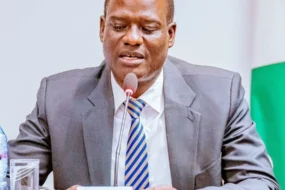Taiwan’s top technology official has resisted the idea that any single country should dominate the semiconductor industry, highlighting the sector’s complexity and the necessity of global cooperation. His remarks came after U.S. President Donald Trump criticized Taiwan’s stronghold in chip manufacturing and vowed to bring the industry back to the United States.
On Saturday, Wu Cheng-wen, head of Taiwan’s National Science and Technology Council, addressed the issue in a Facebook post. While he did not mention Trump directly, he referenced recent statements by Taiwan’s President Lai Ching-te, who reaffirmed the island’s commitment to being a reliable partner in the global democratic semiconductor supply chain.
Wu emphasized that Taiwan’s semiconductor industry did not rise by taking resources from other nations but rather through decades of strategic investment and innovation. He highlighted that the government had played a crucial role in nurturing the industry since the 1970s, including supporting the founding of TSMC, now the world’s leading contract chipmaker, in 1987.
“Taiwan has spent half a century building this success, and it wasn’t simply taken from other countries,” Wu stated.
He also underscored that semiconductor production is a highly intricate process requiring international expertise. Japan specializes in chemicals and manufacturing equipment, while the United States leads in chip design and system innovation.
“The industry thrives on precision, specialization, and division of labor,” Wu explained. “No single country needs to control every aspect of semiconductor technology.”
He went on to say that Taiwan is still willing to cooperate with democratic allies and is establishing itself as a major supply chain hub for semiconductors worldwide.







One reply on “Taiwan Rejects Chip Monopoly Claims, Calls for Global Semiconductor Collaboration”
[…] Taiwan investigators have accused China’s leading chipmaker, Semiconductor Manufacturing International Co. (SMIC), of illegally recruiting high-tech talent from the island. […]